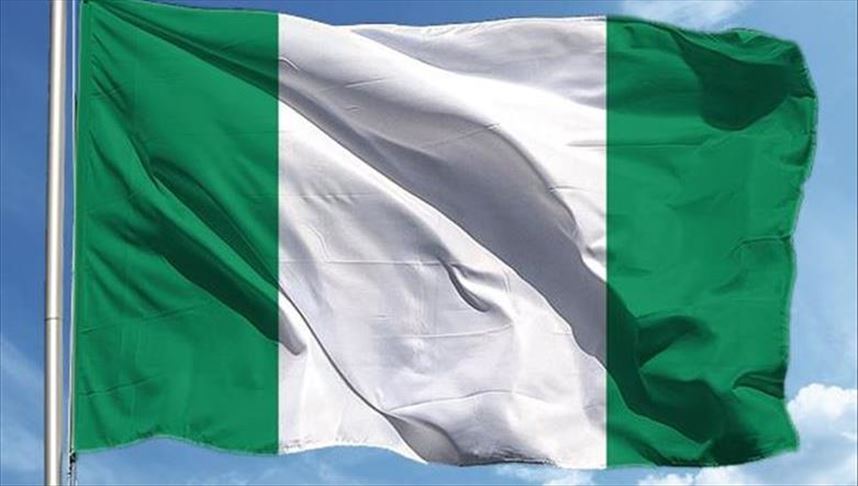Is renaming Nigeria to United African Republic the solution?
Many things in Nigeria start like a joke. So, it won’t surprise me if the proposal for renaming the name of the 60-year-old country also started in that way. The proposed change of name has elicited mixed reactions among Nigerians, especially on Twitter and Facebook. Some were in support of it and the majority, as […]

Many things in Nigeria start like a joke. So, it won’t surprise me if the proposal for renaming the name of the 60-year-old country also started in that way. The proposed change of name has elicited mixed reactions among Nigerians, especially on Twitter and Facebook. Some were in support of it and the majority, as earlier seen, kicked against it, with each section giving its reason(s).
Federal lawmakers from both the chambers of the Senate and the House of Representatives have been going round the country in the past two weeks collating opinions from citizens on the planned constitutional amendment. Groups and individuals nationwide have submitted memoranda to the various committees on their areas of interest or in other words, how they want the to-be amended constitution to be. Some submissions centred around the creation of additional states and local governments; some around economic restructuring; some around youth engagements in governance and indeed many other areas of interest.
- Pillars, Akwa United battle, Enyimba, Wikki with eyes on NPFL top spot
- 26-yr-old mother wins maiden Aminiya short story competition
But it came to me, and indeed, many Nigerians with surprise when the House of Representatives announced that it had received a proposal from a tax consultant in Lagos, Adeleye Jokotoye, seeking the renaming of the country from the name it got more than a century ago to the United African Republic. Jokotoye’s reason that appeared to us is: the name Nigeria was a colonial creation by the British who colonised this entity in the early 18th century to the mid-19th century. So, for him, the name does not reflect our culture and needs to be changed.
The reason given by the author of that memorandum was genuine but it seems he needs to refer to books written on the history of Nigeria so as to refresh his memory about Nigeria’s history and how the country came into being. Nigeria – not only the name – the country itself was a colonial creation. The country was born in January 1914 when the then British colonial Governor, Fredrick Lugard, brought the Northern and Southern protectorates together to form a single colony for easy exploitation. So, many things, including institutions that exist today in this country, are colonial creation. I think his reason for those holds no water.
But in the first place, what’s wrong with the current name? Can renaming the country bring a lasting solution to the prevailing challenges the country is battling with today?
The critical challenges facing this country which seem endless could not be solved by just a change of the country’s name. Even if the proposed change of name sees the light of day, nothing will change our debt profile; nothing will change the increasing corruption in the public service; attitudes of citizens will hardly be changed and of course, many wrongs will keep moving on the wrong lane because only the identity is changed and not the country and its people. So, it means that the name is not our problem. We know our problems and let’s face them if really we are ready for the new Nigerian project.
The major focus of all of us – the government and the responsible governed – should be on how to sustain our fragile unity and restore trust and tolerance among diverse ethnic groups in the country. The unity of this country only starts and stops on the lips of its citizens but doesn’t reflect in their actions and how they relate. You can understand this more if you traverse the country.
There are tensions all over the land with each region facing its peculiar security and other economic challenges. Insecurity and agitations by secessionist groups are on the increase. Southeast has now become a hot zone with the incidence of killings and destructions being reported on a daily basis all in the name of agitating for an independent state that was abortively fought some 50 years ago, this time round, with Nnamdi Kanu spearheading the frontline agitators from a far distance. Agitation for the creation of the Oduduwa republic sprung up recently in the South-West with Sunday Igboho in the lead. ISWAP has now expanded its criminal activities from the territories of North-East to North-West and has been launching attacks and kidnapping innocent citizens, including students in schools. This story is not different in the North-Central.
So, I’m of the opinion that what we need now is not a change of identity in our numerous national identities. We need the government at the centre to be serious enough in how it deals with issues and how it confronts most of the problems we are having. The problems that are fast accumulating are posing serious threats to our democracy that hasn’t lasted for even a quarter of a century as well as our corporate existence as a nation. All hands must now be on deck to get this country back on track, else we will all gather one day to regret our actions and what the dysfunction of our system has caused us all.
If the joke by Adeleye becomes true, it means that we will, aside the new name, also need a new anthem; a new coat of arm; perhaps a new flag; and new so many things. A citizen of Nigeria is known and addressed as a ‘Nigerian.’ So, if we later change to United African Republic, how would a citizen of the UAR be known and addressed?
By Safiyanu Danladi Mairiga
Safiyanu Danladi Mairiga writes from Gombe State
